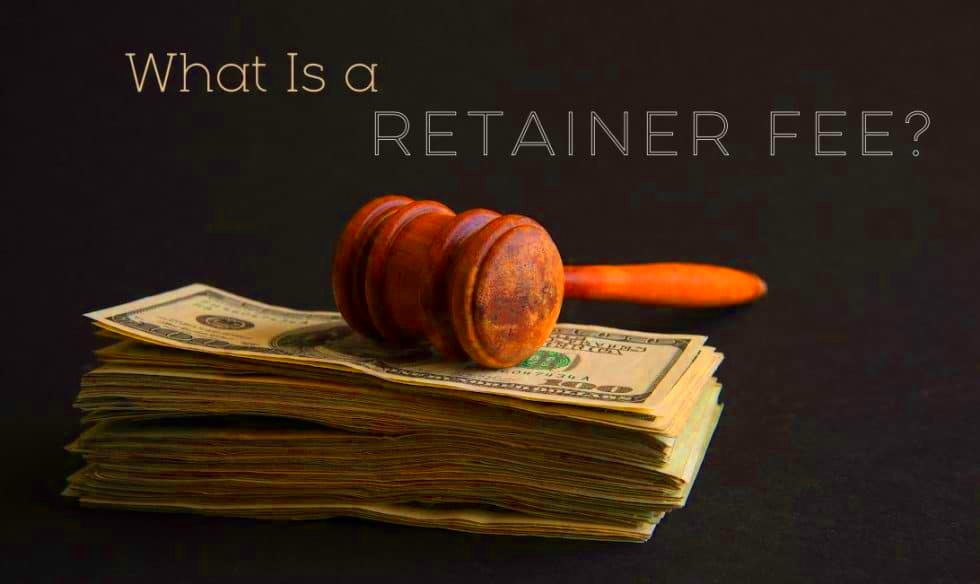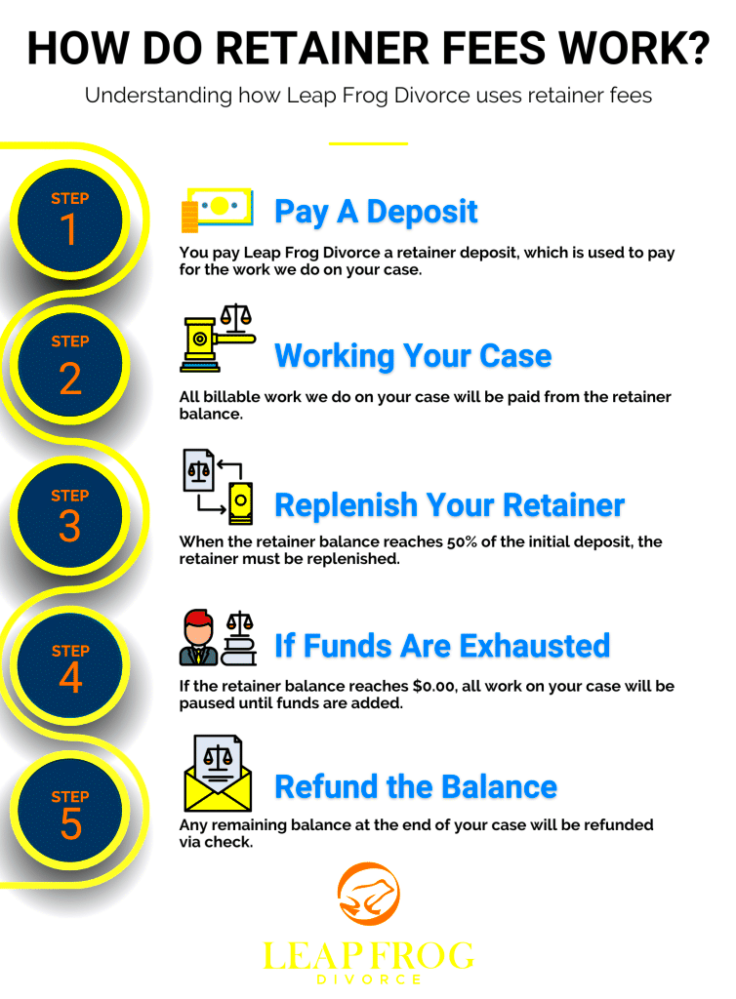Family Law Retainer Fees Explained
Family law can be complex and emotionally charged, making it essential to have a knowledgeable attorney by your side. One aspect of hiring a lawyer that many people find confusing is the concept of retainer fees. A retainer fee is an upfront payment made to secure a lawyer’s services. In this post, we will explore what retainer fees are, why they are used in family law, and how they work.
What is a Retainer Fee

A retainer fee is a sum of money paid to a lawyer to secure their services for a specific period. This fee acts as a down payment on the legal services you will receive. It ensures that the lawyer is available to work on your case whenever needed. Here’s how it typically works:
- The lawyer will outline the scope of work covered by the retainer.
- The fee is usually deposited into a trust account.
- As the lawyer performs work on your case, they will bill against the retainer amount.
Once the retainer is depleted, you may need to replenish it if you continue to require legal services. If you end up not using all the retainer, the unused amount is usually refunded.
Why Retainer Fees are Used in Family Law
Retainer fees are commonly used in family law for several reasons:
- Commitment: By paying a retainer, clients show their commitment to the legal process and their attorney.
- Availability: It ensures that the lawyer is available to address urgent issues as they arise in family law cases, which can often change rapidly.
- Cost Management: It allows clients to manage legal costs upfront, helping to avoid surprises later on.
- Complexity: Family law cases can involve multiple issues, such as divorce, child custody, and property division, making a retainer useful for ongoing legal support.
In essence, retainer fees provide peace of mind for clients, knowing they have dedicated legal support available when needed.
How Much Can You Expect to Pay
When it comes to hiring a family lawyer, one of the first questions you might ask is, “How much will I have to pay?” The cost of retainer fees can vary significantly depending on several factors, such as the complexity of your case and the lawyer’s experience. Generally, you can expect to pay anywhere from $1,500 to $5,000 for a retainer fee. However, some cases may require higher fees. Here’s a breakdown of what influences these costs:
- Experience Level: More experienced lawyers tend to charge higher retainer fees due to their expertise.
- Case Complexity: Complicated cases, like high-net-worth divorces or custody battles, usually require larger retainers.
- Geographic Location: Lawyers in urban areas typically have higher fees compared to those in rural regions.
- Billing Structure: Some lawyers may charge a flat fee while others bill hourly, affecting the overall retainer needed.
It’s important to discuss these costs during your initial consultation to set clear expectations and avoid surprises later.
Factors Influencing Retainer Fees
Understanding what influences retainer fees can help you prepare better financially. Here are some key factors that can affect the cost:
- Lawyer’s Reputation: A well-known lawyer with a proven track record may charge more due to their reputation.
- Type of Case: Some family law cases, like adoption or guardianship, may require less time and thus a lower retainer.
- Client’s Needs: If you anticipate needing ongoing legal assistance, your retainer may be higher to cover those costs.
- Firm Size: Larger firms might have higher overhead costs, leading to increased retainer fees.
Being aware of these factors allows you to make more informed decisions about which attorney to hire and what to expect in terms of costs.
How Retainer Fees Work
Now that you know what retainer fees are and what affects their cost, let’s dive into how they actually work. When you pay a retainer, you’re essentially prepaying for legal services. Here’s a step-by-step guide:
- Initial Consultation: Meet with your lawyer to discuss your case and agree on the retainer amount.
- Payment: Once you pay the retainer fee, it is typically deposited into a trust account.
- Billing Against the Retainer: As the lawyer performs work on your case, they will bill their hourly rate against the retainer amount.
- Monitoring Usage: Keep track of how much of the retainer has been used. Your lawyer should provide regular updates.
- Replenishing the Retainer: If your retainer runs low, you may need to replenish it to continue receiving services.
- Refund of Unused Funds: If you don’t use the entire retainer, the remaining amount is usually refunded.
Understanding this process can help you manage your budget and ensure you have access to the legal support you need throughout your case.
What Happens When the Retainer Runs Out
So, you’ve paid your retainer fee, and your lawyer has been working on your family law case. But what happens when that retainer runs out? It’s a situation that many clients worry about, but understanding the process can ease your concerns. When your retainer is depleted, several things can occur:
- Notification: Your lawyer should inform you when your retainer is running low, giving you a chance to decide on your next steps.
- Replenishment: You may be required to replenish the retainer if you want to continue receiving legal services. This means paying an additional fee to keep your lawyer working on your case.
- Hourly Billing: If you do not replenish your retainer, your lawyer may start billing you hourly for any further work performed.
- Completion of Services: If your case is nearing completion, your lawyer may discuss the possibility of concluding services without the need for more retainer funds.
- Refund Process: If any part of your retainer is unused at the time of closure, your lawyer should refund that amount to you.
Understanding these steps helps you manage your legal budget effectively and ensures you can maintain the support you need throughout your case.
Alternatives to Retainer Fees
If you’re uncomfortable with the idea of paying a retainer fee, you’re not alone. There are several alternatives that can work better for different situations. Here are some options to consider:
- Flat Fees: Some lawyers offer flat fee arrangements for specific services, such as uncontested divorces or simple adoptions. This way, you know exactly what you will pay upfront.
- Hourly Rates: Instead of a retainer, you can opt for an hourly billing arrangement, where you pay for the time your lawyer spends on your case as you go.
- Payment Plans: Some attorneys may allow payment plans, letting you pay for services over time rather than as a lump sum.
- Contingency Fees: While more common in personal injury cases, some family lawyers may work on a contingency fee basis for specific situations, meaning they only get paid if you win the case.
- Legal Aid: If you’re facing financial difficulties, you may qualify for legal aid, which provides free or low-cost legal services to those who meet certain criteria.
Exploring these options can help you find a payment structure that fits your financial situation while still getting the legal support you need.
FAQs About Family Law Retainer Fees
It’s natural to have questions about family law retainer fees. Here are some frequently asked questions that can clarify common concerns:
- What is a retainer fee? A retainer fee is an upfront payment to secure a lawyer’s services for your case, allowing them to work on your behalf.
- How is the retainer fee determined? The fee is determined by factors such as the lawyer’s experience, case complexity, and geographic location.
- Will I get my retainer back? Yes, any unused portion of your retainer is typically refunded after your case concludes.
- What happens if I can’t afford to replenish my retainer? If you cannot replenish your retainer, you may need to discuss alternative arrangements with your lawyer or consider other payment options.
- Are there any hidden fees? Always ask your lawyer for a clear breakdown of costs and billing practices to avoid surprises.
Understanding these FAQs can empower you to navigate the financial aspects of hiring a family lawyer more effectively.
Conclusion
Understanding family law retainer fees is essential for anyone considering legal representation in family matters. These fees serve as a commitment between you and your lawyer, ensuring that you have dedicated support for your case. By knowing what to expect in terms of costs and how retainer fees work, you can plan your finances effectively. If a retainer fee doesn’t suit your needs, there are alternative payment options available to help you manage legal expenses. Ultimately, clear communication with your attorney about fees and services will lead to a smoother legal experience and a better understanding of the process ahead.


